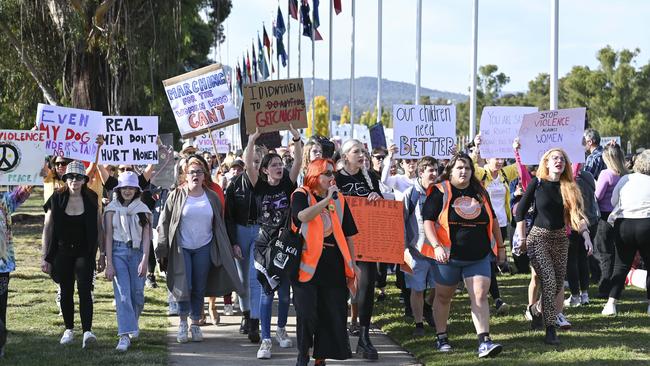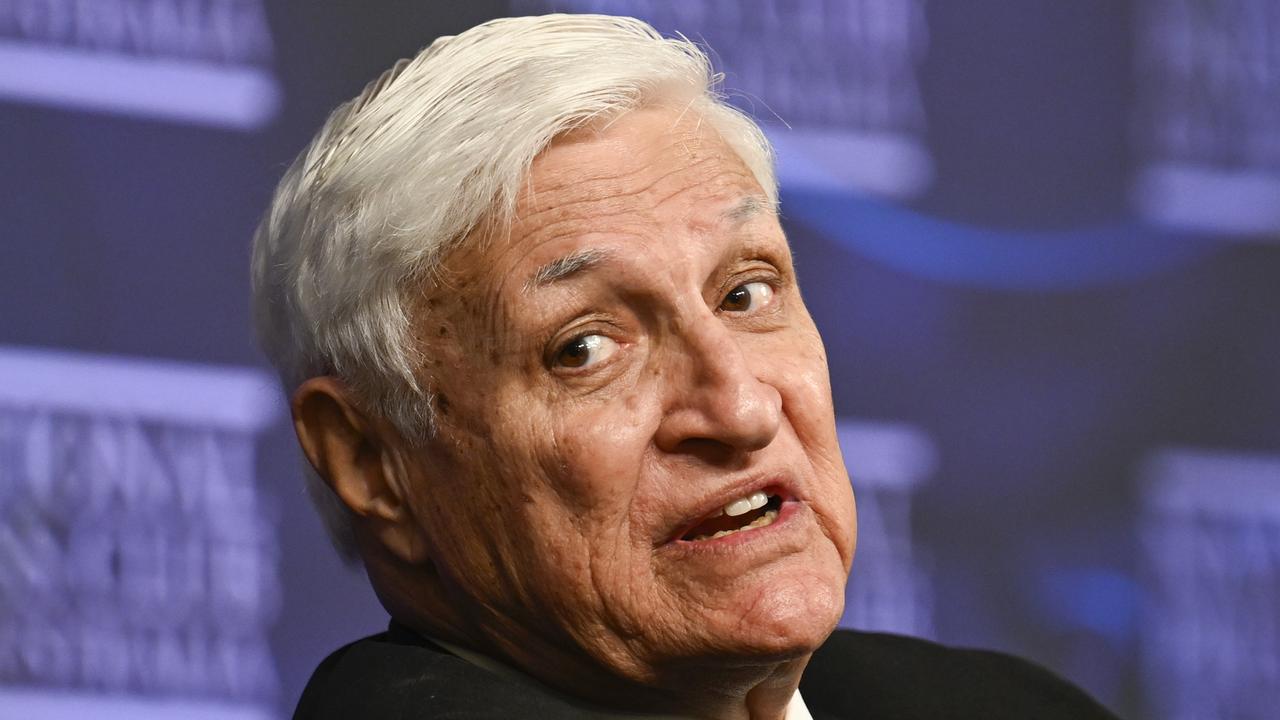Calls for significant funding boost ahead of national crisis talks
Australia has an ambitious goal to end violence against women and children in one generation, but can it be achieved?

Leaders
Don't miss out on the headlines from Leaders. Followed categories will be added to My News.
Australia’s national plan to stop violence against women must be significantly topped up to address the scale of the crisis, leading experts have warned ahead of a snap national cabinet.
The federal government’s ten-year goal to eliminate gendered violence in one generation has come under the spotlight following national outcry over the killings of more than 27 women this year.
Prime Minister Anthony Albanese has called the meeting of state and territory leaders on Wednesday to discuss plans to tackle what he called a “national crisis” of male violence against women.

Leading domestic violence scholar and criminology lecturer Dr Kate Fitz-gibbon said the government’s national strategy to end gendered violence was an extremely comprehensive plan but said its wide-ranging targets would be “impossible” to meet without more funding.
“This government has made an unprecedented funding commitment to ending violence against women, but we are hearing loud and clear from across the sector that it is not enough,” Dr Fitz-Gibbon said.
“Given the scale of the crisis in Australia, there is a need to ensure that we have a fully funded and resourced response sector to meet the safety needs of victim-survivors.”

On average in Australia, a woman is killed by an intimate partner every four days, while one in three women has experienced physical violence since the age of 15.
To grapple with growing concern over a spike in gender-based violence, the federal government unveiled its National Plan to End Violence against Women and Children in 2022.
The $2.3bn, 10-point action plan replaced a previous national strategy after it failed to achieve its key objective of reducing rates of violence against women over a 12 year period.
Labor’s new plan aims to end violence at all stages of a woman’s life and calls for action in four key priority areas: prevention, early intervention, responses and recovery.
Two years into the delivery of the plan, Dr Fitz-Gibbon said it was unsurprising that many were critiquing its progress.
“We cannot accept any level of violence in the community as inevitable,” she said.
“This violence is preventable but the horror of the last three weeks has certainly been a constant reminder that an upscaling of actions across the full spectrum of prevention, early intervention, response and recovery are desperately needed,” she said.

The rate of intimate partner homicides in Australia in 2022-23 increased by almost 30 per cent compared to the previous year, according to new data from the Australian Institute of Criminology.
Ahead of Wednesday’s national cabinet meeting, crossbench MPs have written to the prime minister asking for a robust national effort to improve risk identification and justice system intervention in cases of male violence against women
“We need to get to a position where we’re not being reactive, this is where we are. We’ve got to provide safety for women who need it – while we’re trying to change the culture,” Independent MP Zoe Daniel said.

Ms Daniel said advocates across the domestic violence sector have called for a billion-dollar per year funding injection and flagged prevention education for young men and crisis housing as immediate priority areas.
“You can’t have these organisations living hand to mouth wondering where their funding is coming from – I think there should be five-yearly funding,” she said.
Potential action to be put on the table at Wednesday’s talks includes the establishment of a national register for offenders, electronic monitoring and nationally co-ordinated sharing of information about high-risk perpetrators and serial offenders.
States will also discuss potential changes to bail laws.
Mr Albanese said there would be a focus on perpetrators and prevention
First Ministers will also hear from Commonwealth Domestic, Family and Sexual Violence Commissioner Micaela Cronin.
“We need to acknowledge that this is an issue which is long-term, does require attitudinal change, does require a whole range of measures, but we also need practical, immediate measures and responses as well,” the prime minister said in Brisbane.
“I look forward to a constructive discussion tomorrow morning.”
Originally published as Calls for significant funding boost ahead of national crisis talks




